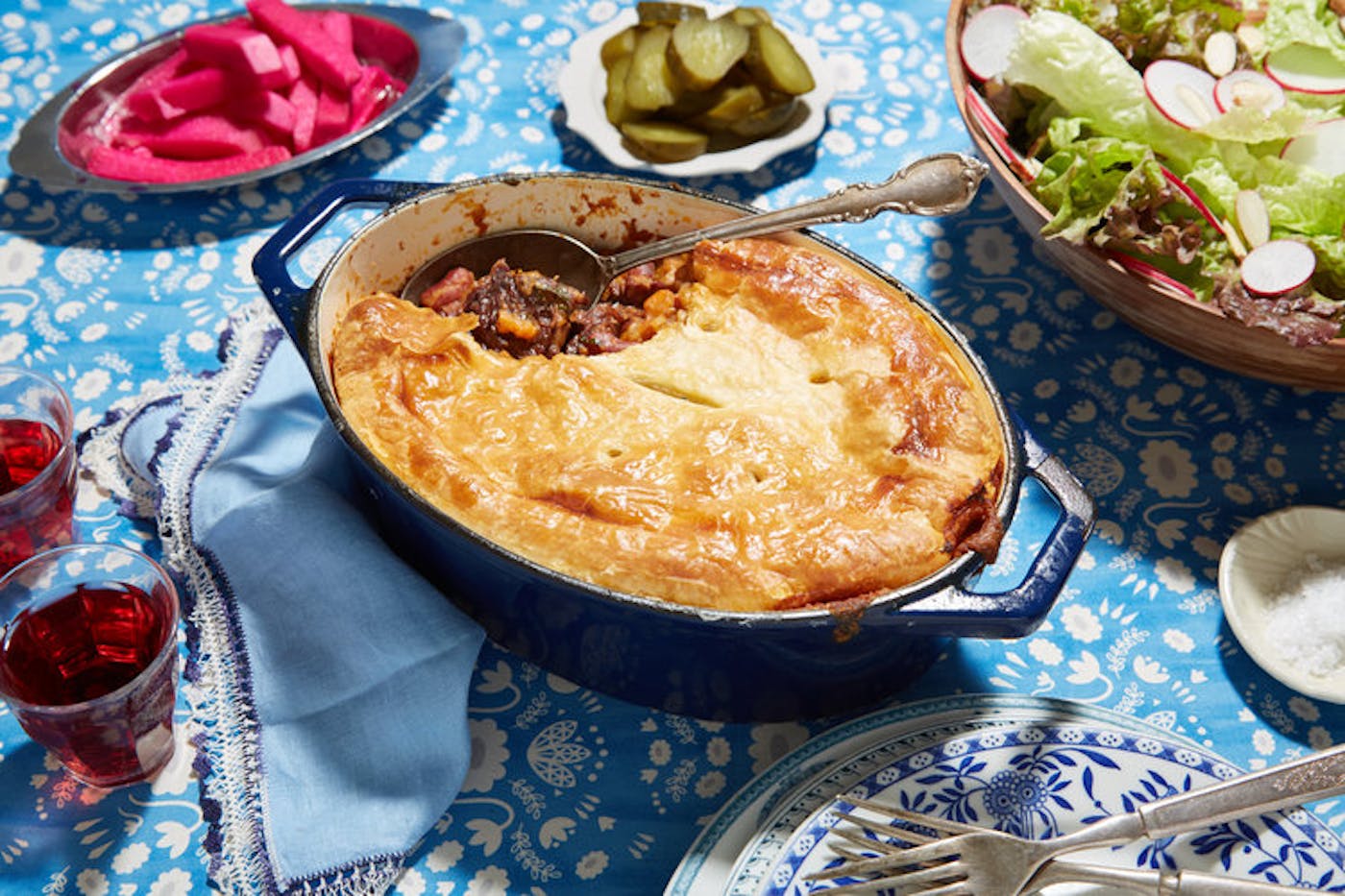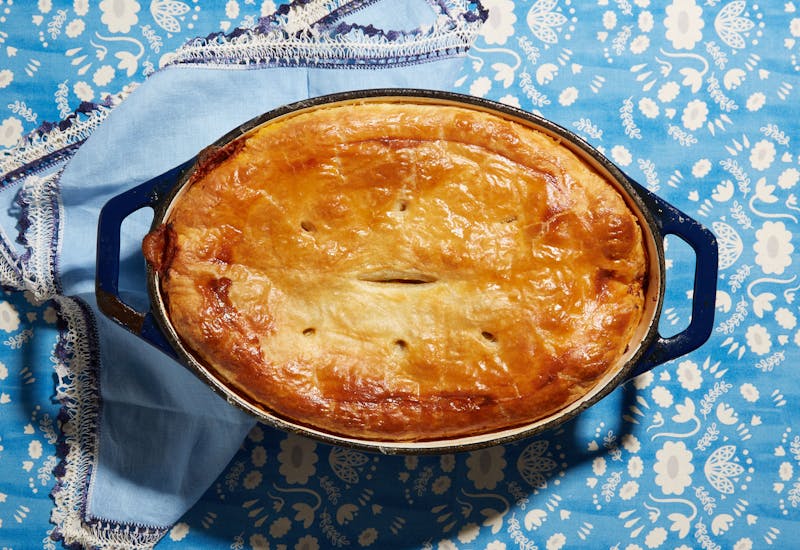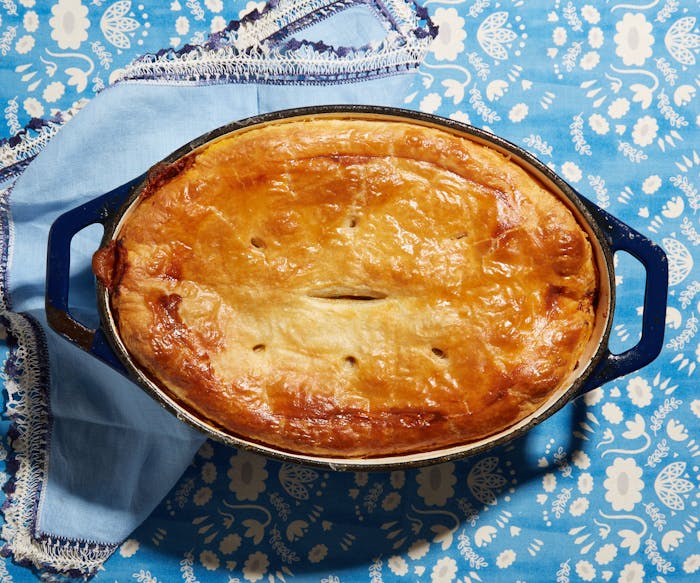“The whole day was a cholent party,” chef Yehuda Sichel says about Saturdays in his Baltimore home growing up. Morning services at shul were followed by cholent at the synagogue. That was followed by a lunch at home of challah, dips like hummus, gefilte fish, deli meats, at times cold schnitzel, and always cholent — one vegetarian and another with kidney beans, barley, flanken or beef short ribs, and kishke, a delicacy made traditionally by stuffing beef intestine with grains and meat.
There was also “some ketchup, some soy sauce, and some duck sauce [in the recipe]. Those are the three Orthodox secret ingredients — you can’t go wrong,” Yehuda jokes.
The heavy stew, which is left to come together in a pot overnight, is a staple of many observant Jewish families who trace their roots to Eastern Europe. For Yehuda’s family, their cholent line starts with his mother’s mother Charlotte. A Hungarian Jew with blonde hair, she posed as a gentile during World War II. By the late 1940’s she was living in a Displaced Persons camp in Germany. “I think my grandmother was cooking in the kitchen there,” he explains. According to family lore, when she immigrated to the U.S. in 1949, the only possession she brought with her was a pot used for cholent that produced a legendary crust. Her cholent was known for being capped with challah kugel, a savory bread pudding, that made the dish appear like a large potpie.
Yehuda says he barely remembers Charlotte’s rendition, but, “I remember the stories about it,” and the scent of the dish. His mother Miriam’s versions were different — less complex and healthier.
Yehuda started to experiment with his own take on the dish when he attended a kosher culinary school in Jerusalem after high school and lived in a house with his classmates. At the start of term, everyone in the house jockeyed to take charge of the cholent on Friday afternoon. “Everyone had to flex their muscles with the cholent,” Yehuda recalls. “Everyone thought they knew how to make it better.” After a couple of weeks, though, he took over, applying French culinary techniques to the recipe, adding wine and veal stock to the mix, soaking beans and browning the meat to draw out its flavor.
Three months into the program, Yehuda left and moved to Philadelphia, changing his relationship with Orthodox tradition, particularly kashrut. He worked his way through a series of the city’s then top restaurants including Brasserie Perrier. French dishes took the place of what he calls “shtibl” (the Yiddish word for a small gathering place for prayer) foods like cholent.
The dish returned to his life periodically as he settled into Philadelphia’s culinary scene. But, now, 12 years later, it has once again become a mainstay in his life at Abe Fisher, a modern Jewish restaurant owned by Zahav’s Michael Solomonov and Steve Cook, where Yehuda is chef. Early on, Yehuda says he knew he needed to add cholent to the menu. “We’d done the kugel thing, the kishke thing...these hard core old school Jewish food items,” he says. Cholent belonged in the mix. “When we talk about the cholent that stuff is like really Jewish,” he adds in his irreverent tone.
He knew he couldn’t, as he puts it, “just serve a bowl of cholent. I don’t think we could get away with that.” Inspired by Charlotte’s crust and challah kugel topper, he added puff pastry to make a cholent potpie. The result is a modern play on a generations old dish that still rings clearly of tradition.
Through cooking and reinterpreting dishes like cholent, Yehudah says:
“I’ve been really fortunate to find a connection to Judaism that I didn’t feel growing up….This is not only my connection to Judaism. This is my contribution to Judaism.”


